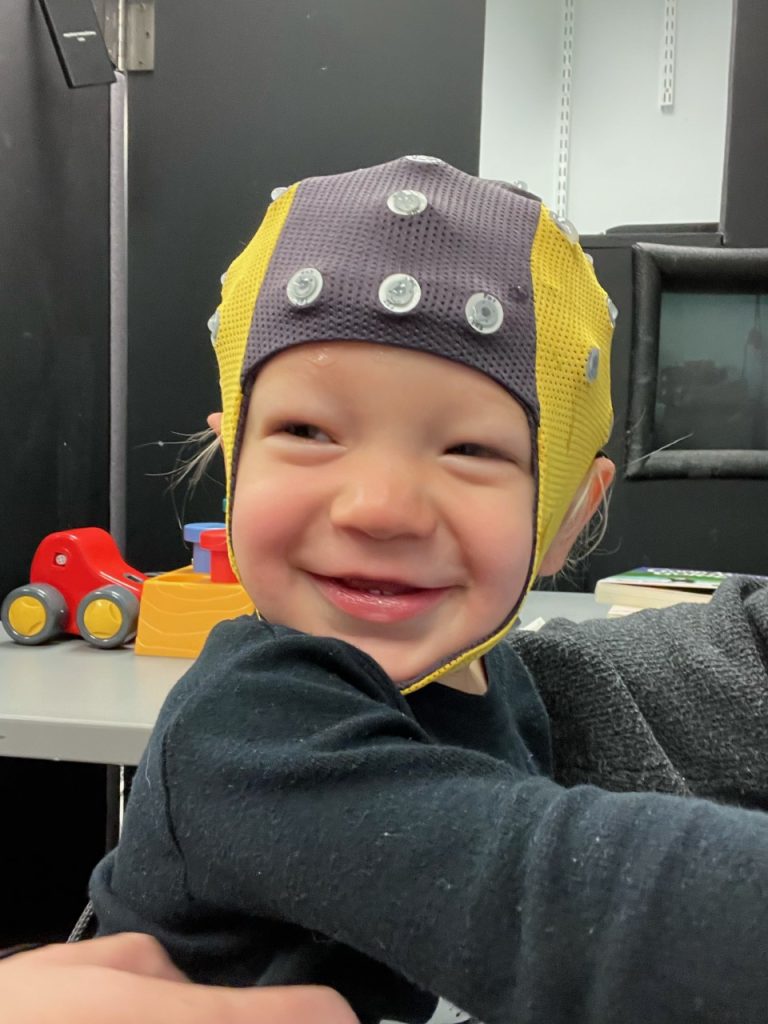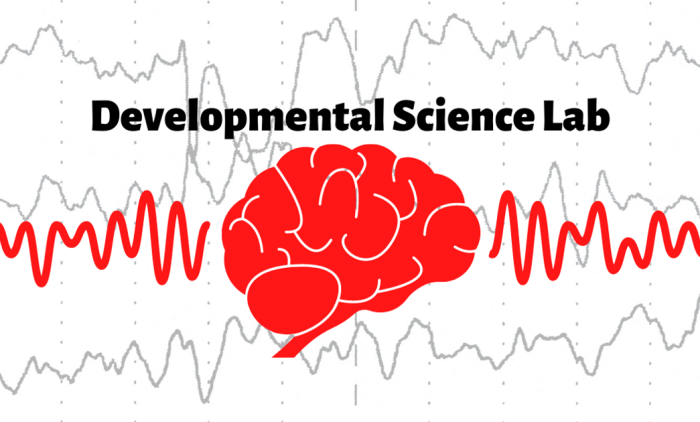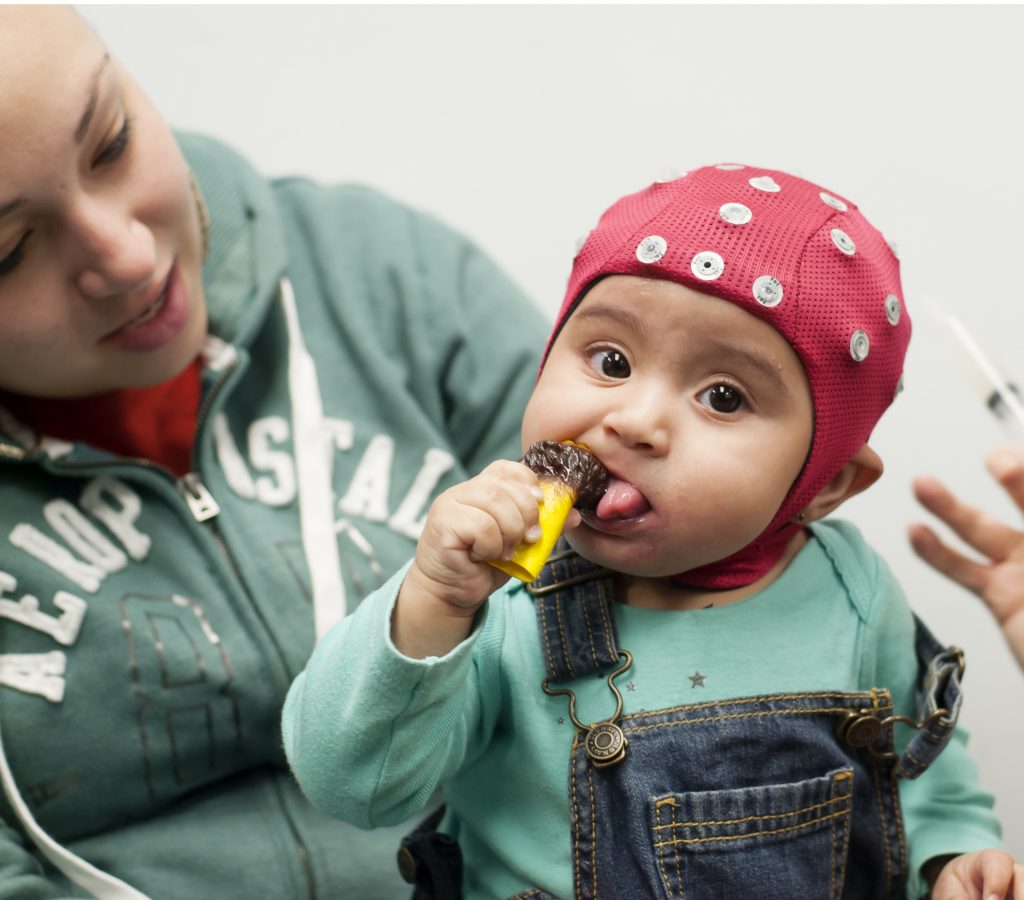We are a team of researchers in the Department of Psychology at Temple University who are interested in how infants and children develop an understanding of the world around them. Since the founding of our lab at Temple in 2004, hundreds of families have visited us to participate in studies. Our research depends on interested parents who can help us learn more about how children’s minds develop over the first months and years. We study development with a variety of measures, including behavioral tasks and simple measurements of children’s brain activity using a technique called EEG.
What is EEG?
In the lab, we use EEG methods to track brain activity. EEG refers to the electroencephalogram, which collects the electrical activity which sits on every person’s scalp, which is actually their brain waves. To collect EEG data we use a special lycra hat (similar to a baby swim cap) containing special sensors (called electrodes) that can record the electrical signals that are produced by the brain: these electrodes simply pick up the signals coming off the surface of the scalp while they are watching things happen or carrying out actions on objects. It is non-invasive and doesn’t cause any harm. We do this same technique on people of all ages! During EEG collection, infants usually sit on a parent’s lap; each recording session lasts around 20 minutes. Children, adolescents, and adults generally sit by themselves in a chair. The length of the EEG depends on the study.
Why do we study infants?
Examining how the infant brain represents its body and environment sheds light on the earliest sense of self and foundations for social cognition. How infants’ brains respond to touch may indicate their understanding of their bodies. To learn more, view a write-up of our work in the New York Times and summaries of our recent publications or email us!
Get in touch: Text/call @ (215) 839-6202, or email us at devlab@temple.edu


